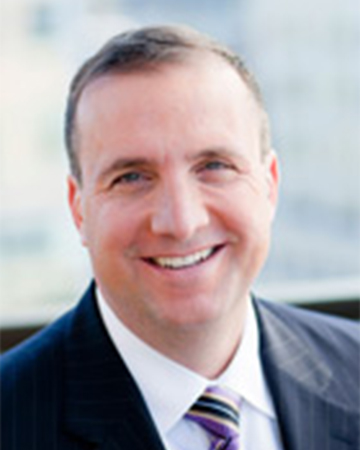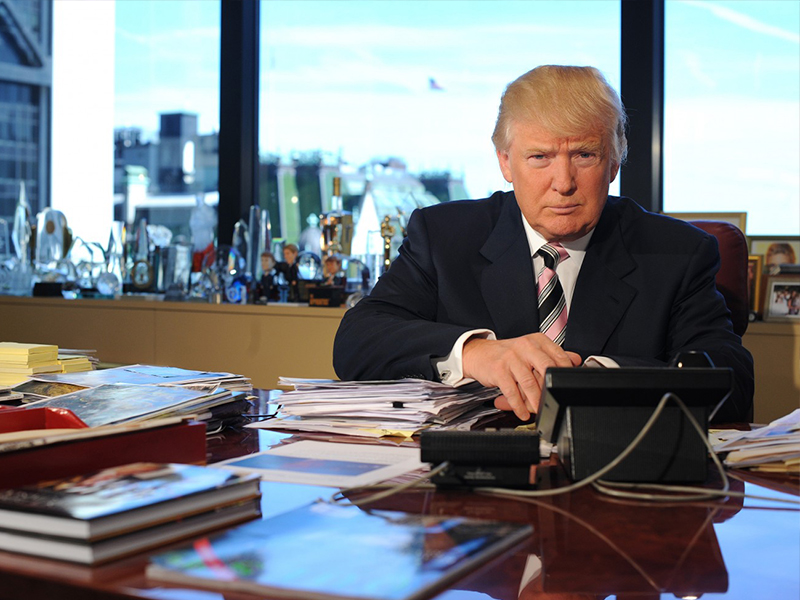Applying business concepts to government is not a fantasy. With the right leader, a heavy dose of patience and good ideas, government can become more efficient delivering more value at decreased burden to taxpayers.
Throughout the presidential campaign, much has been said about Donald Trump’s extensive business experience – mostly by Trump himself. The GOP nominee has taken full advantage of American voters’ longstanding flirtation with the take-charge CEO from corporate America – Lee Iacocca, Ross Perot, Michael Bloomberg – turned Washington fix-it guru.
Yet more than a year into his campaign, Trump has yet to articulate a single concrete idea for reforming Washington. While his ability to draw eyeballs to TV screens, Twitter feeds and skyscrapers is indisputable, if he wins in November the public is going to expect much more than slapping a Trump sign on the State Department and decorating the entrance to the White House in gold leaf.
Applying business concepts to government is not a fantasy. With the right leader, a heavy dose of patience and good ideas, government can become more efficient delivering more value at decreased burden to taxpayers. Someone should bring a much needed corporate savvy to the $4 trillion operation that is the United States government, but if Donald Trump really wanted to do that he would be talking about solutions to actual Washington problems instead of focusing on building “beautiful” walls or throwing temper tantrums on Twitter about his own party.
Trump’s core campaign theme is: “I’ve been personally successful and made a lot of money, so you should trust me to do the same thing for the country.” With less than 30 days to Election Day, it’s past time for Trump to put some meat on the bones of his campaign premise.
What could an effective business leader bring to the federal government? Quite a lot, actually. Here are just a few ideas Trump could be talking about if he was serious about translating success in business into better government:
[ms-protect-content id=”9932″]1. Hire a Chief Operating Officer for the United States
As head of state and commander-in-chief, the president has a myriad of responsibilities. One of these is running the massive, antiquated and change-resistant federal bureaucracy – a full-time job on its own (and one that Trump, even if he were elected, would be loath to bother with1). So why not make it someone else’s full-time job? The president should create the position of COO and fill it with a seasoned business executive, ideally with some Washington expertise, whose job is to cut through years of accumulated red tape and institute inefficiencies across all government departments and agencies. The COO would report directly to the president, and be empowered by the president to implement change in the face of any interagency territorialism or other bureaucratic spats.
2. Audit government departments
Unfortunately, in government or the corporate world there are always going to be bad operators who try to game the system. We were given a poster child for that sort of behaviour not long ago, when an official at the General Services Administration was photographed2 luxuriating in a Vegas hot tub on a taxpayer-funded boondoggle. Internal, annual audits conducted by the government’s COO will help root out misuse of taxpayer funds before they rise to such levels of absurdity. Not only would these annual assessments catch criminal activity early on, but they can also expose the more benign inefficiencies in spending that plague too many government agencies.
3. Treat cabinet members like senior VPs
There was once a time when a post as a US Cabinet officer meant something. These were people of significant accomplishment and reputations whose opinions carried weight. Now many, if not most, of the faces who sit around the cabinet table are unknown quantities with little power because all major decisions are run out of the White House. Meanwhile, the departments they ostensibly head only grow bigger and more powerful. It’s time to reinvigorate the idea of the president’s Cabinet and make these department heads the equivalent of senior VPs in a corporation – entrusted with authority, accountable to the boss, and responsible for reporting to the nation on a regular basis on how their dollars are being spent, and where excesses have been corrected.
4. Reward efficiency
In a corporate setting, every dollar saved is highly valued and those who save money are rewarded and promoted. In government, it’s quite a different story. Many government agencies feel the need to spend every dollar that’s allocated to them, creating a “use it or lose it” mentality. This is not responsible stewardship of taxpayer funds. Instead, departments should be incentivised to save money, not spend it. Government bonus pools should be restructured based on year-over-year cost savings and money saved. The Office of Management and Budget can be reconfigured and decentralised, with individual agencies encouraged to be more efficient and self-sustaining.
5. Rebrand the government
Fewer than 20% of Americans say they trust the government today. By any corporate standard, that is terrible brand identification. If Trump should excel at anything, it’s branding. Love him or hate him, he knows how to promote. So why no concrete ideas on earning back the public’s trust? To do that, government should change how it relates to the people it is designed to serve – it’s time to think of the taxpayers as shareholders. And how does a responsible corporation treat its shareholders? It demonstrates a return on their investment. The American people cough up their “investment” every year in the form of taxes, and the government should be transparent about how that investment is used. To drive this home, the president could address Congress every year specifically on financial and operational performance. It may not be as popular as the wide-ranging State of the Union address, but it will show a dedication to transparency and accountability.
None of these strategies are enough to solve all of government’s problems. Their purpose is to start a conversation. Anyone can talk in generalities about cutting major deals and making this or that “great again”. But harnessing the disruptive and innovative power of the private sector and making it work for an entire nation of shareholders – the American people—will take a serious commitment and real ideas.
This was first published at Forbes on October 13 2016
About the Author
 Howard Schweitzer, managing partner of Cozen O’Connor Public Strategies, served as COO of the TARP for George W. Bush and Obama.
Howard Schweitzer, managing partner of Cozen O’Connor Public Strategies, served as COO of the TARP for George W. Bush and Obama.
References
1. http://www.politico.com/magazine/story/2016/08/7-reasons-why-trump-would-hate-being-president-214192
2. http://www.politico.com/media/story/2012/04/a-ridiculous-picture-of-jeff-neely-destroyer-of-taxpayer-money-000413


































